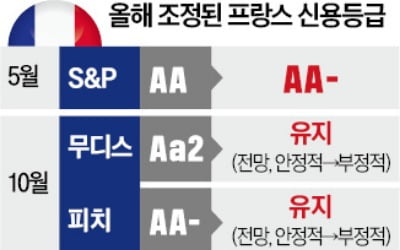[대학생을 위한 비즈니스 영어] 'That's Not...'
-
기사 스크랩
-
공유
-
댓글
-
클린뷰
-
프린트
[ That's Not Deflation, Just Slower Inflation ]
Prices are falling.
Commodities are 12% cheaper than they were two months ago.
Imports costs are dropping like a stone.
Producer prices in October took the largest one-month dive on record.
Sounds like it's time to worry about deflation, right?
Wrong.
First of all, let's get straight what deflation is, and what it isn't.
Deflation is a broad and lasting decline in the overall level of prices caused by a period of severely weak demand.
Price drops in a few select goods, such as oil or computer equipment, is not deflation.
Nor is it a slowdown in the growth of the price indexes.
That's disinflation.
Deflation works like inflation in reverse, a wage-price spiral that heads downward.
Falling prices create expectations of further price declines, which cause people to delay making purchases.
With demand weak, unemployment soars, causing wages to fall in tandem with prices.
The real cost of borrowing rises, even as market interest rates fall to zero, so few companies want to borrow for new projects.
Think Japan.
Prices for a broad array of assets, such as those for stocks and real estate, began to fall a decade ago.
That led to a sharp contraction in economic activity that boosted unemployment to successive new highs in every year since 1998, and since then, wages have been falling.
In September, they were down 3.5% from a year ago.
Household spending has stagnated, forcing companies to cut prices further to bring in business.
Consumer prices, down 0.8% from a year ago, have been falling since 1999.
Even with market interest rates at zero, few in Japan want to borrow or invest.
-----------------------------------------------------------------------------
[ 디플레이션이 아닌 약해진 인플레이션 ]
물가가 떨어지고 있다.
원자재가격이 두달전보다 12% 싸지고 수입비용은 급감하고 있다.
10월 생산자물가는 월간 기준으로 사상최대 낙폭을 보였다.
디플레이션을 염려해야 시점으로 보이는가.
아니다.
우선 먼저 무엇이 디플레이션이며,무엇이 디플레이션이 아닌지를 살펴보자.
디플레이션은 극도로 약해진 수요로 인해 물가 전체가 계속 떨어지는 것이다.
석유나 컴퓨터장비등 몇몇 특정 상품가격이 떨어지는 것은 디플레이션이 아니다.
물가지수들의 상승률이 둔화되는 것 역시 디플레이션이 아니다.
그것은 디스인플레이션이다.
디플레이션은 인플레이션과 정반대로 작용,임금이 나선형으로 하강한다.
물가하락세는 물가가 앞으로 더 떨어질 것이라는 기대감을 조성,사람들로 하여금 구매를 연기하게 만든다.
이로 인해 수요가 줄어들면 실업이 급증,임금도 물가와 함께 떨어진다.
이때 시장금리가 비록 제로까지 떨어진다 해도 실질 자금조달비용은 상승,신규사업을 위해 자금을 빌어쓸 기업들이 거의 없다.
일본을 보라.
주식과 부동산등 거의 모든 자산의 가격이 10년전에 떨어지기 시작했다.
이에따라 경제활동이 급격히 위축되면서 1998년이후 매년 실업이 연속해서 사상 최대로 불어나고 임금은 떨어졌다.
9월에는 임금이 1년전에 비해 3.5% 하락했다.
가계지출은 정체됐고 기업들은 사업을 유지하기 위해 어쩔수 없이 가격을 더 낮춰야만 했다.
1년전에 비해 0.8% 떨어진 소비자물가는 1999년이래 계속 하락하고 있다.
시장금리는 제로지만 지금 일본에서는 돈을 빌려쓰거나 투자하려는 사람이 거의 없다.

